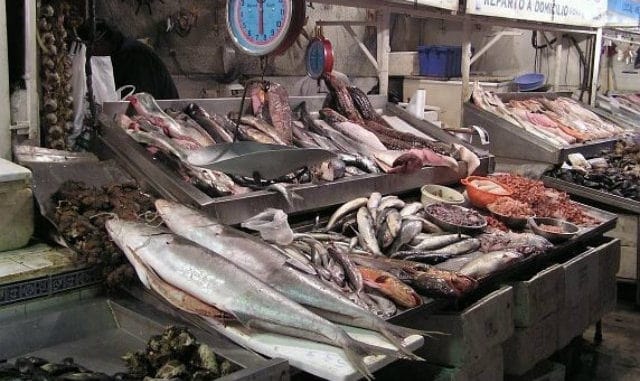
SANTIAGO – Marine conservation organization Oceana has called out to national authorities to urgently implement a national traceability plan for fishery products, after television program Misión Encubierta (Undercover Mission) aired an investigative report titled “Something Smells” revealing serious sanitary transgressions regarding the fish and shellfish sold at the Metropolitan Fish Terminal Market, which accounts for 60% of fresh seafood sold in Santiago.
The report showed poor control of the food cold chain, decomposed fish being sold at the market, in addition to a great number of illegally sourced products.
“The problem with fishery products is that we don’t know what day they were processed, where and when they were caught, or if the cold chain was maintained”, said Liesbeth van der Meer, Executive Director of Oceana Chile. “Traceability would allow fishery products to be controlled from bait to plate, similar to what happens today with beef or pork,” she added.
The report exposed the mechanism used by gangs to smuggle illegal fish into the Metropolitan Fish Terminal Market, clearly showing that the security guards were complicit in order to bypass controls conducted by the National Fisheries Service (Sernapesca). The report is even more serious when considering that the Metropolitan Fish Market is the primary wholesale market for fresh seafood in Chile, and accounts for 80% of the fishery resources being solid in Chile.
Sernapesca is currently working on the gradual implementation of an electronic traceability platform that will provide on-line monitoring of products caught on Chilean shores, reduce illegal capture of resources, in addition to control compliance with fish quotas and ensure food safety of fish and shellfish. The bill that aims to strengthen this service, which includes measures such as traceability, was approved by the Senate’s Fishery Commission, and will now go on to be reviewed by the Constitution and Finance commissions.
“Traceability is an important tool to fight against illegal fishing, which not only damages ecosystems, but can also seriously impact people’s health”, said van der Meer. “Illegal fish that is smuggled into distribution centers clearly did not comply with the cold chain, thus considerably increasing the probability for these products to make us ill”, she added.
Oceana has called out to authorities to urgently rectify the misdeeds reported by the investigative journalism program, which are currently jeopardizing the health of Chilean people and the future of our fisheries.



